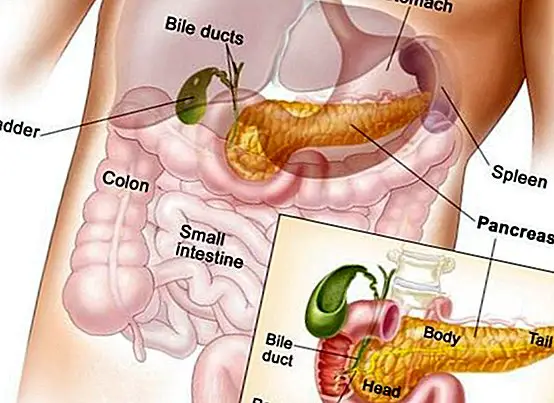Pneumonia: symptoms, causes and treatment
The pneumonia it is a very common condition of the respiratory system, frequently derived from a previous infection, such as a flu or pharyngitis. Although pneumonia can be cured, it can also have serious consequences if it is not correctly diagnosed or treated, being responsible for a high number of deaths per year.
Pneumonia is a disease that affects both adults and children, so we must be alert to the presence of symptoms. In this article we will detail what are the signs of this respiratory condition, why it arises and how is its treatment.

Basically it consists of the inflammation of the lungs as a result of an infection caused by a virus or by a bacterium. As we will know in the following sections, their symptoms tend to be characteristic when usually there is intense pain in the affected side of the thorax. In addition, it becomes one of the infections that most commonly cause hospital admission.
Pneumonia occurs when an infection of the lung tissue occurs. Pneumonia generates inflammation of the alveoli, generating the entry of fluid and infectious material. Since the alveoli are the part of the lung where the air is filtered, managing to transmit oxygen to the blood and discarding carbon dioxide, this generates serious consequences.
Risk factors for pneumonia
While anyone can get pneumonia, there are some risk factors that increase the chances of getting the disease. Therefore it is advisable, when possible, to avoid such situations.
The first one is the smoking, which as we know, is highly detrimental to health, especially for our respiratory system. He too alcoholism, malnutrition and over weight they are risk factors.

Other risk factors for pneumonia are related to other health problems such as certain chronic diseases, including chronic heart, liver, kidney and lung diseases, AIDS, cancer and diabetes mellitus.
Also in patients with low level of defenses, for example because of having suffered extirpation of the spleen, by prolonged treatment with immunosuppressants or corticosteroids.
Typical symptoms of pneumonia
Let us now look at the most common symptoms of pneumonia, something we must keep in mind so as not to let time pass and to resort early to a medical consultation.
People who suffer from pneumonia develop fever, cough with phlegm, and often chest pain, especially when breathing. This pain is usually intense and appear especially on the side of the chest where the inflammation is. You may also feel agitation of breathing and increased frequency of heartbeat.
In a smaller proportion of cases there are other types of symptoms, it is the atypical pneumonia. Among them, dry cough (without phlegm), body aches, especially in joints and muscles. It is also common in these cases to feel headache or gastrointestinal discomfort.

Treatment of pneumonia
Firstly, the professional must diagnose the presence of the disease, usually from the symptoms described by the patient and from the listening of the sounds that occur during breathing. It is usual to request a chest x-ray to have a pulmonary image.
Depending on the case and severity, hospitalization can be decided or, if it is not necessary, home treatment with periodic controls. Patients at higher risk, such as those over 65 years of age or those who suffer from chronic diseases such as those mentioned above, tend to undergo hospitalization due to their greater risk.
Pneumonia, when transmitted by bacteria (different varieties of pneumococcus) can be treated with antibiotics. The earlier the medication is started, the better the patient's recovery. Some of the antibiotics indicated are those derived from penicillin, amoxicillin, levofloxacin, azithromycin and clarithromycin, among others.
In turn, during the treatment of pneumonia should rest and take care of the intake of fluids in a necessary amount. Medications are also usually given to reduce pain and reduce fever. This article is published for informational purposes only. It can not and should not replace the consultation with a Physician. We advise you to consult your Trusted Doctor. ThemesRespiratory infections



